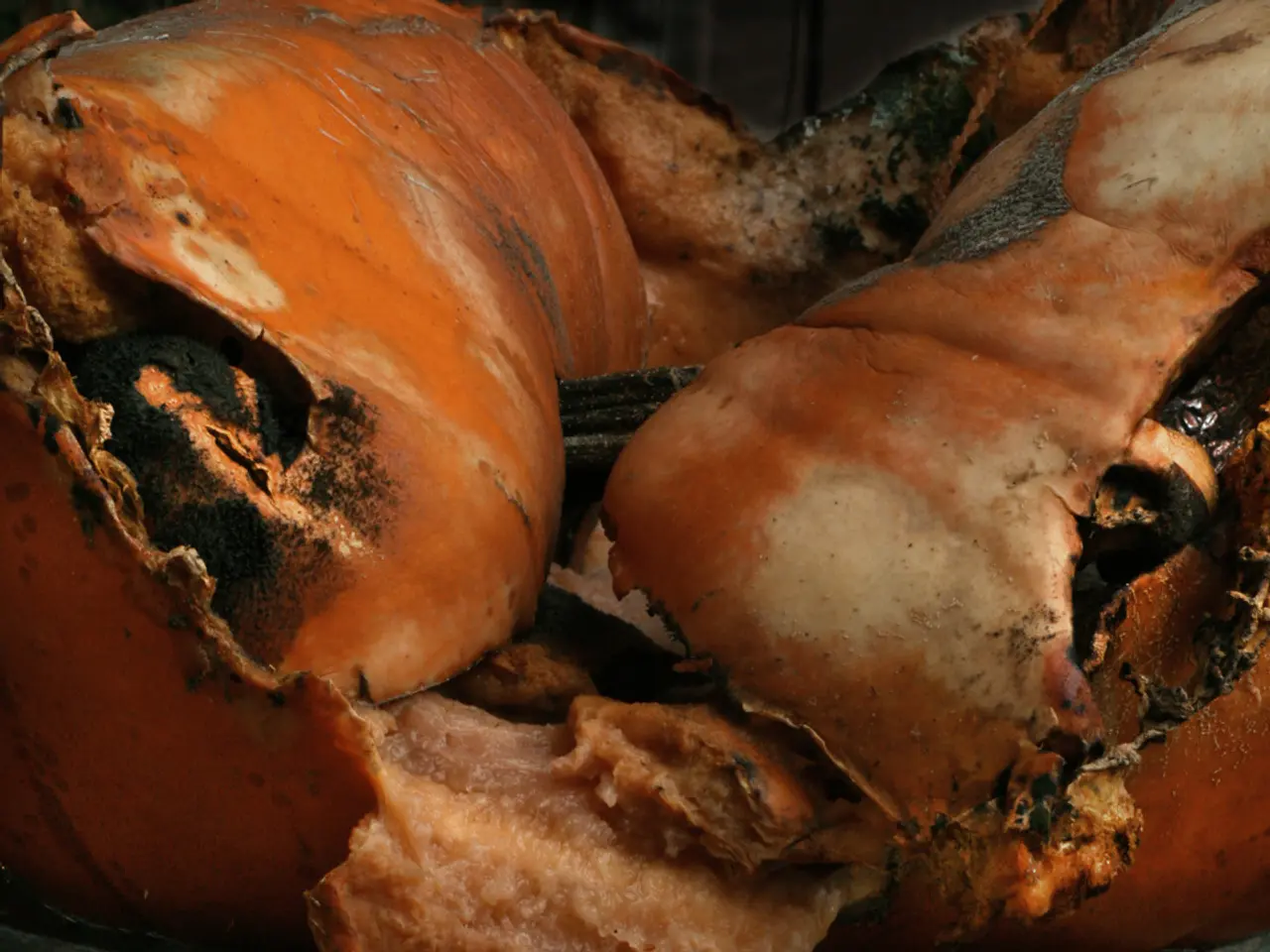Strikes at a Large Factory: Will the Kebab Interruption End? - Factory Doner Production Halted: Is the Spike Interruption Permanent?
In the heart of Germany, one of the country's largest kebab factories, Birtat, is currently embroiled in a contentious wage dispute between its employees and management. The ongoing strikes, demanding a monthly wage increase of 375 euros, have disrupted production lines and raised concerns about a potential shortage of doner kebabs in Germany and across Europe.
Birtat, a leading doner skewer manufacturer in Germany and Baden-Württemberg, with an annual turnover of approximately 200 million euros, supplies over 13 million consumers monthly. The company's doner skewers are delivered to snack bars across Europe, reaching almost every major city. However, the ongoing strikes have put a strain on the supply chain, causing fears of a potential shortage of doner meat.
The employees, primarily immigrants from Turkey, Romania, and Bulgaria, work under challenging conditions. They handle heavy doner skewers (up to 100 kilograms) and work with sharp knives in a factory with near-freezing temperatures. The workers have been taking to the streets for weeks, fighting for more money and a local collective bargaining agreement.
The Food, Beverages and Catering Union (NGG) is supporting the workers in their quest for a fair wage. The union is demanding a transparent and non-discriminatory wage structure and a starting wage of 3,000 euros. The NGG sees a wage agreement as a means for a larger portion of the profit to go to those who have earned it.
The first negotiation between the wage commission and the Birtat management took place in March, but the management has not yet responded to the demands of the employees and the union. Since the cancellation of the fourth meeting at the beginning of July, there has been almost complete silence from the Birtat management. The union accuses the responsible parties of a blocking attitude.
The employees' demands were further escalated last week when a ballot among the union members resulted in a clear vote in favor of expanding the strikes. In mid-July, the NGG struck the company for five consecutive days. However, the Birtat management categorically rejected a wage agreement, according to Krüger.
If longer strikes occur in the near future, the supply of doner meat at some snack bars could become scarce, leading to a corresponding price increase for this popular fast-food staple. Restaurant owners and consumers worry that the prolonged conflict could lead to scarcity, driving up costs and impacting availability across Europe, given Birtat's major role in the supply chain.
As of August 2025, no resolution or agreement has yet been reported, so the situation remains fluid, with significant implications for the kebab supply in Europe. The ongoing dispute has sparked a wave of solidarity among workers in the industry, calling for fair wages and better working conditions. The future of Birtat and the European kebab industry hangs in the balance.
[1] Birtat Meat World SE employees strike for fair wages [2] Kebab Shortage in Germany: Birtat Workers Strike for Better Pay [3] Birtat Meat Workers Demand Higher Wages and Better Working Conditions [4] NGG Supports Birtat Workers in Wage Dispute
[1] The wage dispute at Birtat, a significant kebab manufacturer in Germany, has led to ongoing strikes by employees, seeking a monthly wage increase of 375 euros and better working conditions.
[2] The ambitious demands of Birtat workers have disrupted production lines, causing potential shortages of doner kebabs in Germany and across Europe.
[3] Employees, predominantly immigrants from Turkey, Romania, and Bulgaria, are demanding a fair wage and a local collective bargaining agreement, with the Food, Beverages and Catering Union (NGG) offering support.
[4] The NGG is pushing for a transparent and non-discriminatory wage structure, aiming for a starting wage of 3,000 euros, hoping to address the imbalance between employee wages and company profits.




